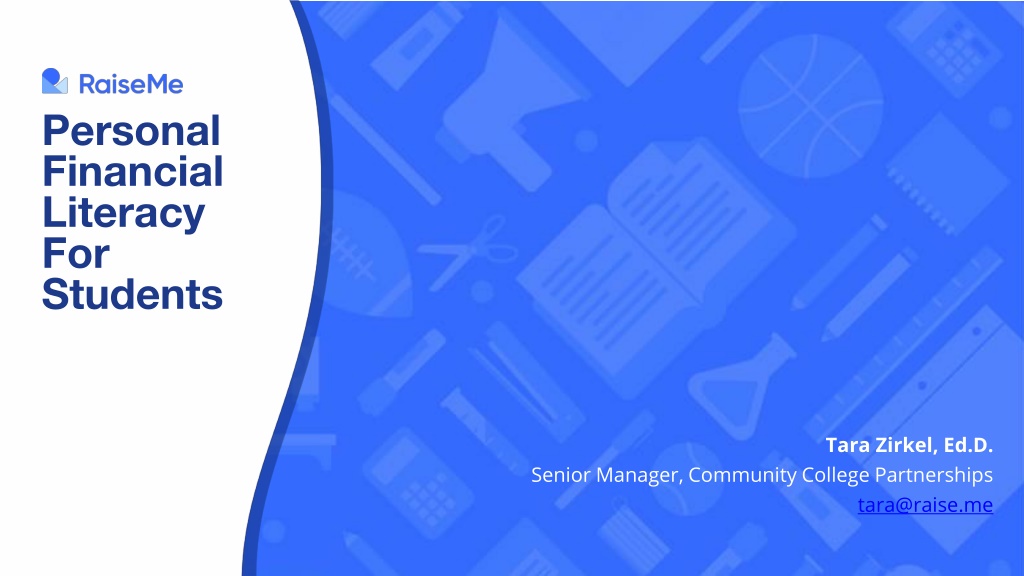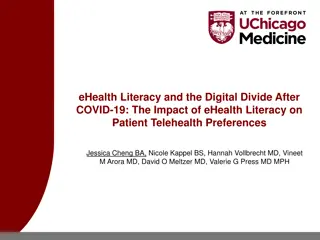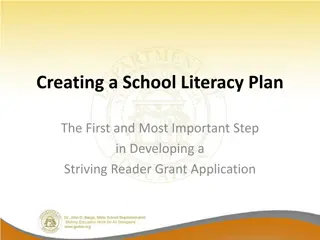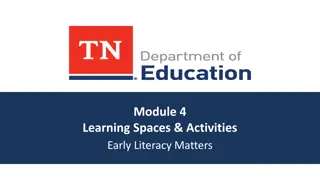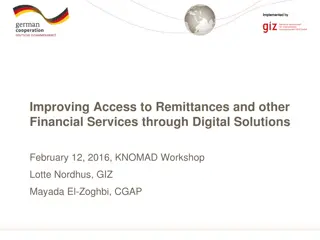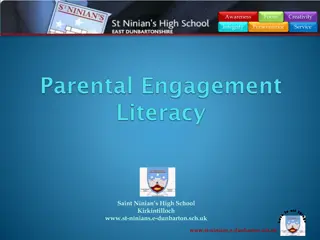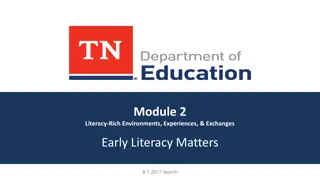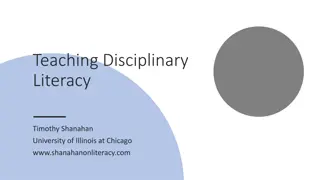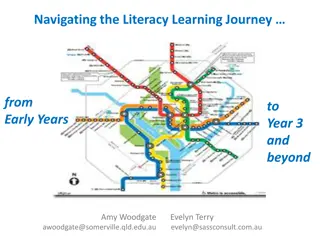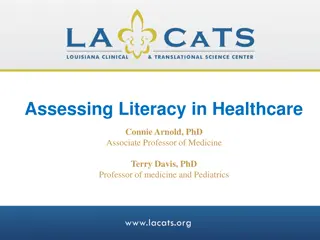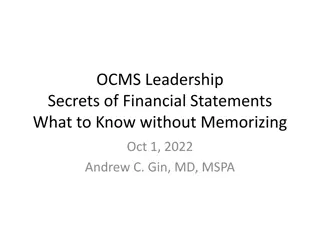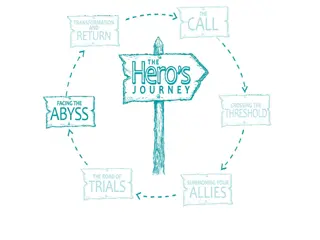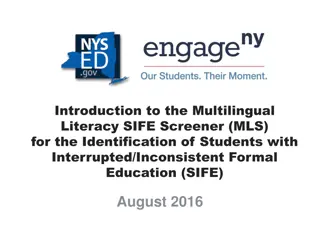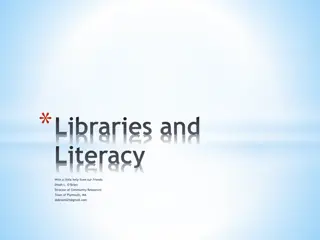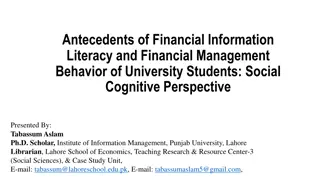Enhancing Financial Literacy for Students through Practical Activities
Explore the concept of financial literacy with activities focusing on budgeting, understanding credit scores, and managing expenses. Students engage in group discussions to define financial terms and simulate real-life budgeting scenarios to develop practical money management skills. By delving into income, expenses, debt, and savings, students gain valuable insights into making informed financial decisions.
Download Presentation

Please find below an Image/Link to download the presentation.
The content on the website is provided AS IS for your information and personal use only. It may not be sold, licensed, or shared on other websites without obtaining consent from the author. Download presentation by click this link. If you encounter any issues during the download, it is possible that the publisher has removed the file from their server.
E N D
Presentation Transcript
Personal Financial Literacy For Students Tara Zirkel, Ed.D. Senior Manager, Community College Partnerships tara@raise.me
What does financial literacy mean? Financial literacy is having the set of skills and knowledge that allows you to make informed and effective decisions with all of your financial resources. Creating a budget Planning for the future Taking care of your credit score 2 2
Activity: How familiar are you? How familiar are you with these words? In groups of 3-4 students, try to define each one of these terms. Credit score Budget Income Expenses Discretionary Loans Interest Debt myfico.com 3 3
Activity: How familiar are you? How did you do? In your groups, discuss what you think these might mean in real life scenarios. For example, how could you end up in debt? Credit score: Number that shows your capacity to repay a loan or debt Budget: How much you can afford to spend Income: Money you earn (specifically, after taxes) Expenses: Bills and obligations that are not optional Discretionary: Spending on extras , like entertainment Loans: Money you borrow that will need to be paid back Interest: Amount of money you pay in order to borrow money Debt: Spending that exceeds what you earn, that you may owe to someone else 4 4
Creating a reasonable budget When thinking about creating a budget, consider these four things: How much money do I earn? What expenses do I *need* to pay? What of my spending is discretionary? What can I afford to save for the future? 5 5
Activity: What is my personal budget today? Think about how much you earn each month. If you aren t working, let s assume you earn $1,500 a month, after taxes. How much could you spend on each of the following items without going into debt? Birthday Present: $20 Haircut: $25 Childcare: $500 Video Game: $50 College Application Fee: $50 Drive to a College Visit: $50 Fancy Coffee: $5 each Debt: $50 Medical Care: $50 Rent: $700 Car Payment: $250 Car Insurance: $80 Gas: $80 Electric Bill: $50 Water: $30 Gas: $50 Cable: $75 Internet: $50 Cell Phone/Data: $80 Household Supplies: $30 Clothing: $50 Bus Pass: $75 Groceries: $200 Eating Out: $10 per meal Toiletries: $40 School Supplies: $50 Movies: $10 each Concert: $25 each Savings: $50 Car Repair: $100 6 6
How does credit work? Your credit score shows lenders how likely you are to repay your debts. The higher your score is, the more likely you will repay them, which makes lenders more likely to give you money. If you try to rent an apartment, buy a car, get a new phone, or even try to get a private school loan it s likely the lender will check your credit. experian.com 7 7
How does credit work? Several things can impact your credit score. Paying your bills on time and controlling your debt will help keep your credit score high. www.myfico.com 8 8
What can help and hurt my credit score? Paying your bills, including student loans, on time. Not going into credit debt. You may end up paying interest, in addition to what you spent, which can put you further into debt. Not opening too many lines of credit. Only borrowing what you need in student loans. Creating a savings account for emergencies, so you don t have to borrow. Not creating a budget. Not paying at least the minimum on your bills. Ignoring your student loans. This can also impact your financial aid! Opening and closing multiple credit lines. Getting sent to a collection agency. Overspending on discretionary items. 9 9
Why does my credit score matter? Being approved to borrow money, for things like cars or business loans Approval for a lease Accessing loans for school Contracts for services, like cell phones or cable TV Financing for home improvements The better your credit score is, the lower your interest rates might be 10 1 0
Homework: Check your credit score By law, you are entitled to a free credit report each year, that can be accessed at: https://www.annualcreditreport.com/ Check to make sure everything on your report is correct. If not, take the necessary steps to correct it. Check your credit score. You bank or credit card company may offer your credit score for FREE! Credit scores can vary based on bank. Check what is impacting your score. Do you have any unpaid bills you didn t know about (medical bills, parking tickets)? 11 1 1
How does RaiseMe work? RaiseMe is a free tool that allows you to start earning transfer scholarships in your first semester of community college. You can earn for small achievements, like getting an A in a course, community service, or meeting with four year colleges. As you add, your scholarships get larger! 1 2
How do students get started? You can sign up as soon as you start your two year degree at www.raise.me Sign up takes 5 minutes, and it s FREE for students! You can research any college in the country, and build a list of the ones that interest you 1 3
Thanks! Want to learn more? www.raise.me Questions about RaiseMe for Community College Students? Try our Community College FAQ site. Email us at ccinfo@raise.me!
